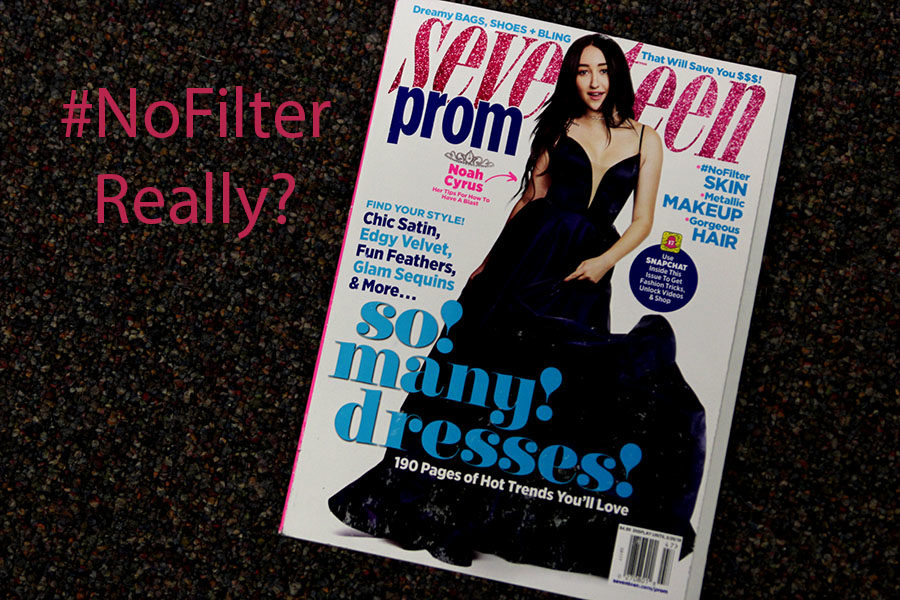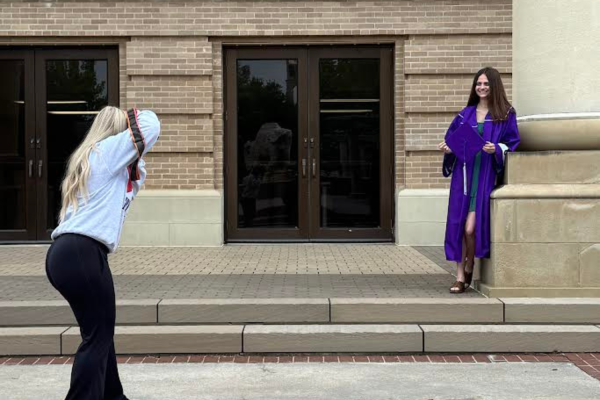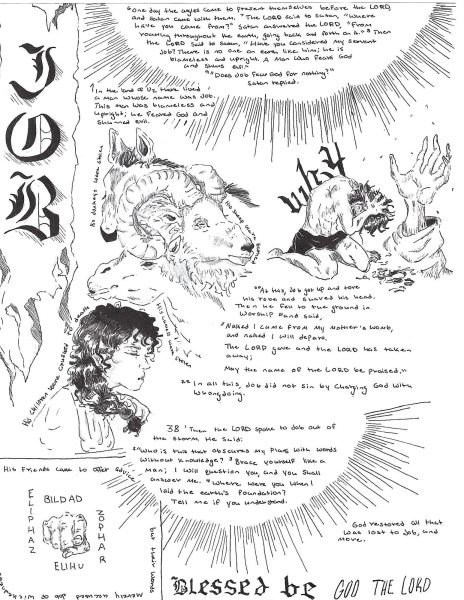Magazines for teens present filtered reality
Teen magazines have their own particular approach to showcase what they believe to be the perfect body type, what’s in style or (often made-up) rumors about a celebrity. These magazines catch millions of girls’ attention, pulling them in to read a little more or buy into what they have to say.
Last week, CVS stores announced they will quit retouching models in their store brand cosmetic ads in order to make their customers feel more comfortable with their own looks. Although some magazines appear to have positive articles and an interesting perspective on political topics, many teen magazines only serve one purpose: to do whatever they have to do to lure young girls into buying into their assessment of current events. Canyon ISD even blocks online access to “Seventeen” magazine as it is deemed “too mature” for high school students.
 Every month, “Seventeen” publishes what they depict as a perfect human, dominating what girls all across America believe they should look like. Magazines have the power to control what the new trends are, how girls should act in certain situations, what they should wear, what attracts boys and many more ideas. “Seventeen” predominately targets young teenage girls, but none of these images are wholesome or realistic by any means.
Every month, “Seventeen” publishes what they depict as a perfect human, dominating what girls all across America believe they should look like. Magazines have the power to control what the new trends are, how girls should act in certain situations, what they should wear, what attracts boys and many more ideas. “Seventeen” predominately targets young teenage girls, but none of these images are wholesome or realistic by any means.
In “Seventeen,” staffer Andrea Stanley wrote her take on “What Your Last Selfie Says about You.” She explains how some selfies poses show “introverted tendencies” and others look “neurotic.” This type of opinion piece leaves teenagers who would not normally care about something as silly as a selfie analyze what message they are sending. It leaves them questioning themselves because of a negative connotation from a magazine, proving magazines don’t always have their best intentions in mind for their target audience.
Teen magazines are not always factual and do not always rely on credible sources. “Teen Vogue” is marketed to teens looking for the next big topic of discussion. In Teen Vogue’s article concerning Martin Luther King Jr. Day, writer Jenn Jackson lays out King’s history through his speeches, books and lifelong story. Jackson talks about how in her own education she learned his story through the eyes of “mainstream, predominantly white commentators.”
Through the rest of the article she continues on about “facts” about King most people never knew. She states, “In fact, in October 1963, U.S. attorney general Robert F. Kennedy authorized secret wiretapping of King’s phones.” Jackson proceeds to agree with the FBI’s tactics, because, “…the continued use of surveillance…hardly comports with passive stories one would expect of the peaceful, non confrontational character often described today.” She wrote this article based on of her own biased opinion despite what many Americans were taught in public education systems, causing teenagers to disregard their original impressions of King. Teenage magazine writers are not concerned with a solid base or what education systems teach about certain topics; they care about what will sell and make money.
Beside the fact magazines leave teenagers unsure of themselves and they prove statistically to be controversial in what is taught, teen magazines are simply not all they are cracked up to be. I’ve been given teen magazines by relatives for years, I’ve been a teenager for four years and I’ve caught on to the fact they are not uplifting in the slightest.
Teenage girls want to fit in and not be embarrassed, all while standing out and looking impressive. While no one can have both at the same time, it’s easy to look to advice and tips from posts, tweets and famous individuals on the covers of magazines since it surrounds every store of every size.
Looking to magazines for answers is like looking to a child for help on choosing a college; their knowledge isn’t relevant. Time and time again, teen magazines prove to be inaccurate, yet they continue to make money off girls who just want the truth. If young women want to grow up to be a good person, become comfortable in their own bodies and beautiful in their own way, not by the worldly standards, they should throw away the magazines and find out for themselves what proves prosperous.

Hey, I’m Faith Douglass! I am a senior this year, and this is my second year in newspaper. I play basketball and run cross country and track. I am in Student Council, Decide to Defy, Fellowship of Christian Athletes, LEAD, National Honor Society and...










